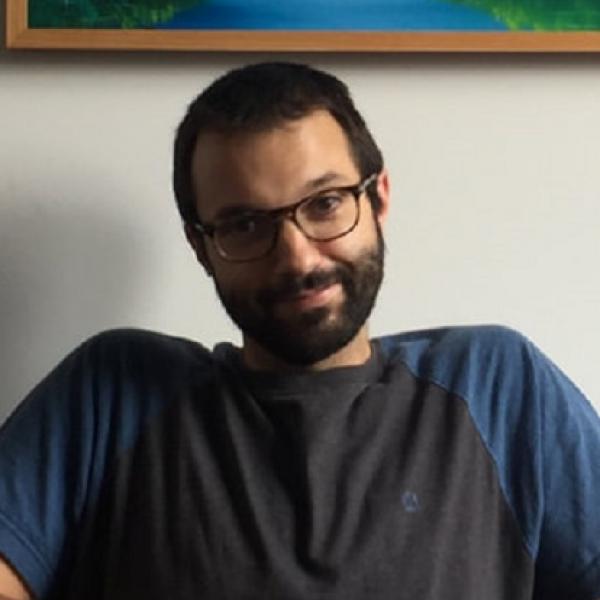Gerardo (Jerry) Viera
Lecturer
School of History, Philosophy and Digital Humanities
Lecturer in Philosophy of Science
Director of MA Cognitive Studies
Associate Director of the Hang Seng Centre for Cognitive Studies
Department Seminar Coordinator


Full contact details
School of History, Philosophy and Digital Humanities
B03
45 Victoria Street
91Ě˝»¨
S3 7QB
- Profile
-
Jerry works in the philosophy of cognitive science and mind. He also frequently engages in interdisciplinary research with psychologists and neuroscientists. He arrived at the University of 91Ě˝»¨ in Autumn 2020. Prior to that he was a postdoctoral researcher at the Centre for Philosophical Psychology at the University of Antwerp. He received his PhD in Philosophy from the University of British Columbia in 2017.
- Research interests
-
Jerry’s research lies at the intersection between philosophy, psychology, neuroscience, and related fields. The main focus of his research concerns temporal perception and cognition. He has several ongoing research projects that intersect in various ways:
- Time: Unity and the Self: We gather information about time through multiple sensory systems, yet the world strikes us as containing a single unified and coherent temporal ordering of events - a single unified timeline. How is this possible? This project involves investigating how temporal information is integrated across the various timekeeping mechanisms used in perception and how this relates to our sense of the self.
- Foundations of Cognitive (Neuro)Science: Two foundational claims in the sciences of the mind/brain are that (i) minds/brains represent the world; (ii) they do so by having different parts that work together. Jerry’s research investigates how (i) is possible by using the formalisms provided by information theory and game theory. Jerry’s research also investigates how we understand claims about (ii) when the different areas of the cognitive science disagree as to how the mind is structured.
- Perception: From Probabilistic Processing to Consciousness
Project #1 (with Lara Krisst, Jennifer Laura Lee, and Trey Boone): Funded by the Templeton World Charity Fund, through a sub-grant awarded to the Summer Seminars in Neuroscience and Philosophy, this project investigates the nature of representations in early visual processes (e.g., iconic memory and visual short-term memory) to better understand competing theories of consciousness. The project combines philosophy, psychology, and neuroscience.
Project #2 (with Raphael Gerraty, Jessica Thompson, and Samuel Lippl): Funded by the Templeton World Charity Fund, through a sub-grant awarded to the Summer Seminars in Neuroscience and Philosophy, this project investigates whether or not early visual processes make use of probabilistic representations. The project combines philosophy, psychology, neuroscience, and computational modelling.
- Time: Unity and the Self: We gather information about time through multiple sensory systems, yet the world strikes us as containing a single unified and coherent temporal ordering of events - a single unified timeline. How is this possible? This project involves investigating how temporal information is integrated across the various timekeeping mechanisms used in perception and how this relates to our sense of the self.
- Publications
-
Journal articles
- . Behav Brain Sci, 46, e305.


- . The British Journal for the Philosophy of Science.


- . Mind & Language.


- . The British Journal for the Philosophy of Science, 71(2), 443-469.


- . Philosophical Studies, 176(1), 21-44.


- . Behavioral and Brain Sciences, 42.


- . Journal of Vision, 7(7), 9-9.


- Temporal Cognition in Apes. Australasian Journal of Philosophy.


- . Mind & Language.


- . Estudios de FilosofĂa(64), 173-188.


Chapters
- . Behav Brain Sci, 46, e305.
- Teaching interests
-
Jerry enjoys teaching modules that show the various ways in which philosophy and science can interact. As a result, his modules are highly interdisciplinary. His modules explore how science itself operates, the social structure of scientific research, and how findings from across scientific and philosophical research programs interact to inform us about the world and the mind. He is also interested in supervising PG research projects in many areas of the philosophy of cognitive science and mind.
- Teaching activities
-
PHI 123: Philosophy of Science
What is science and why do we trust it?
PHI 126: Mind, Brain, and Identity
What are you? What is the mind? Do you have free will?PHI 355/356: Philosophical Projects
The content of this module changes from year to year. Recent topics have included: Does unconscious perception exist?PHI 31009/61009: Philosophy of Cognitive Science
The content of this module changes. Recent versions have included memory and the self. Future versions may cover topics such as the scientific study of consciousness and the computational theory of mind.PHI 6016: Cognitive Science Research Seminar
How does the mind work?
- Postgraduate Supervision
Jerry welcomes expressions of interest from students who are interested in doing a PhD in the philosophy of cognitive science, philosophy of science, and philosophy of mind under his supervision.
Current PhD Students:
- Renee (Zhiyi) Ye (first supervisor). Thesis topic: The study of consciousness in non-human and artificial systems.
- Yuhan Fu (second supervisor). Thesis topic: Moral psychology and moral learning.
Completed PhD students:
- Andrew Moore (second supervisor). Thesis topic: The nature of belief.
- Yifan Mei (second supervisor). Thesis topic: Mindreading in non-human animals.
Links
